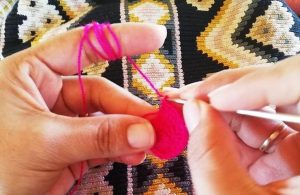To dare to follow a path of integral vocational discernment accompanied by the community is to dare to confront oneself and give a Christian response to the concerns of today’s world.
Since History repeats itself, there seems to be inevitable friction between the generations. On the one hand, young people do not accept what is imposed on them by society; on the other hand, the older ones – the authorities of society – complain about the neglect and rebelliousness of the younger ones.
The incessant questioning of young people, “why does it have to be like this?” is offset by the shaking of the adults’ heads. Meanwhile, the adults grumble that “in my time it was nothing like that. There was respect. Children obeyed their elders,” etc. In any case, no one seems to understand that the adults were also, once, the complainants of the welfare state.
What does this mean? Did they simply surrender to the forces of the social authority of their time? Of course not! If so, the society that we have now would be a carbon copy of the one before. This is not the case. This only means that it is always easier to resort to resignation than to consider and make fundamental changes. Adults are aware of the difficulties of fighting against the current and, in some way, try to protect the young.
Often, this desire for protection takes on an imposing and almost blind character and blocks the intergenerational relationship. However, does it make sense to lower your arms in the face of this possibility? Rather, is it not a matter of fighting for a joint journey in which the experience of some helps to make the changes that others want to make?
It is said that an old donkey does not learn languages, so the younger ones are called to take the first step towards a fruitful relationship between generations. Not because older people are unable to do so, but because the boldness that characterizes youth facilitates the beginning of a path that was never done alone.
Vocation does not exist in isolation from others, nor does it survive if it is lived only hand-in-hand with those who think like us. To dare to follow a path of accompanied vocational discernment is to dare to confront oneself, with one’s insecurities and with the very fragility of what one wants.
After all, vocation is not the result of a selfish desire, but of the dream of God that meets the authenticity of what we are–without mutilating or blocking us in what truly makes us happy and fulfilled.
Brazilian writer and journalist Clarice Lispector says that “those who walk alone may even arrive faster, but those who are accompanied with certainty go further.” Now, when it comes to vocation, there is always talk of “going further”, even though that does not mean arriving quickly.
On the other hand, that doesn’t mean standing still either! Rather, setting out on the journey and, in the face of difficulties, living the discovery of your vocation means living life in a safe, profound, and authentic way.
Despite the differences and difficulties of dialogue, it is in the community that the vocation is borne; it is there that the “life in abundance” we yearn for germinates; not because this life leads to “getting rid of the community”, but because it allows you to live with it and for (at the service) it.
It is not about becoming a slave to the community, but about making our action a service that integrates and mirrors what we truly are and want to be. If today we do “many things for the Church”, daring to live our vocation will lead to being “many things in the Church”! It will no longer be an activity/ responsibility that we have to do for others, but a service of ours–in which we fulfil ourselves and through which we go on the paths of our vocation.
(Susan Vilas Boas – Photo: 123rf.com)





